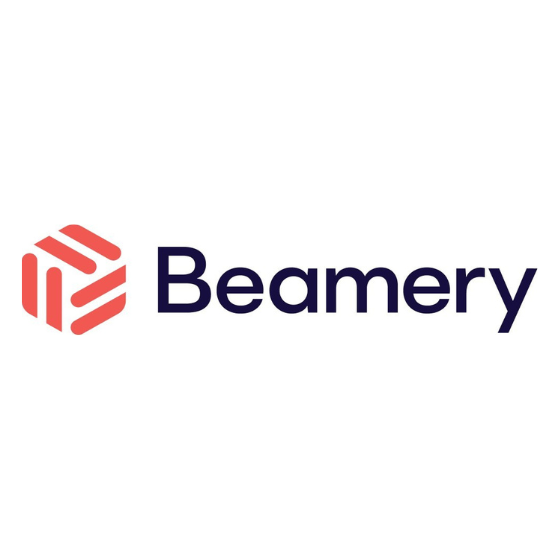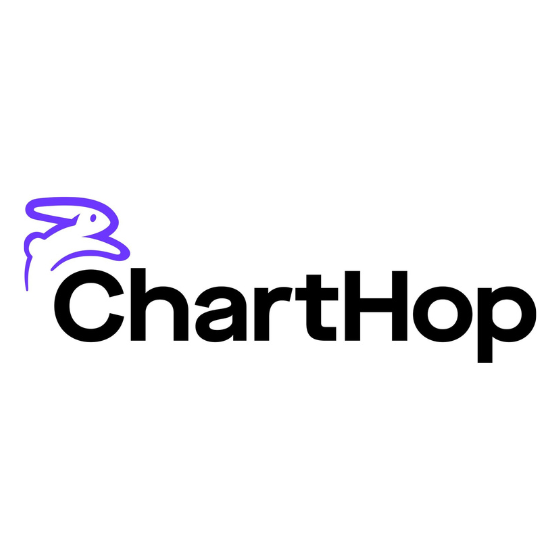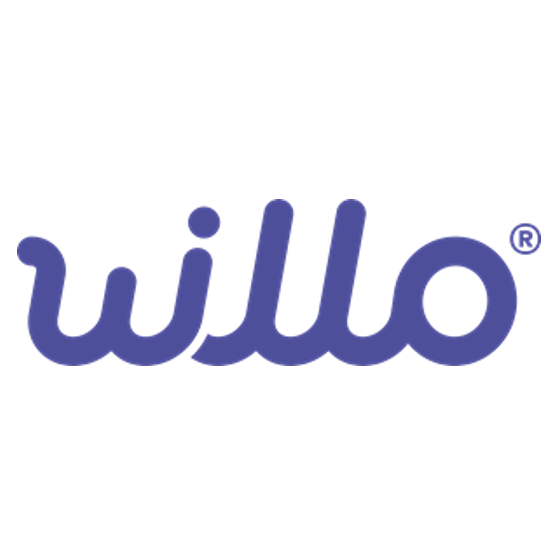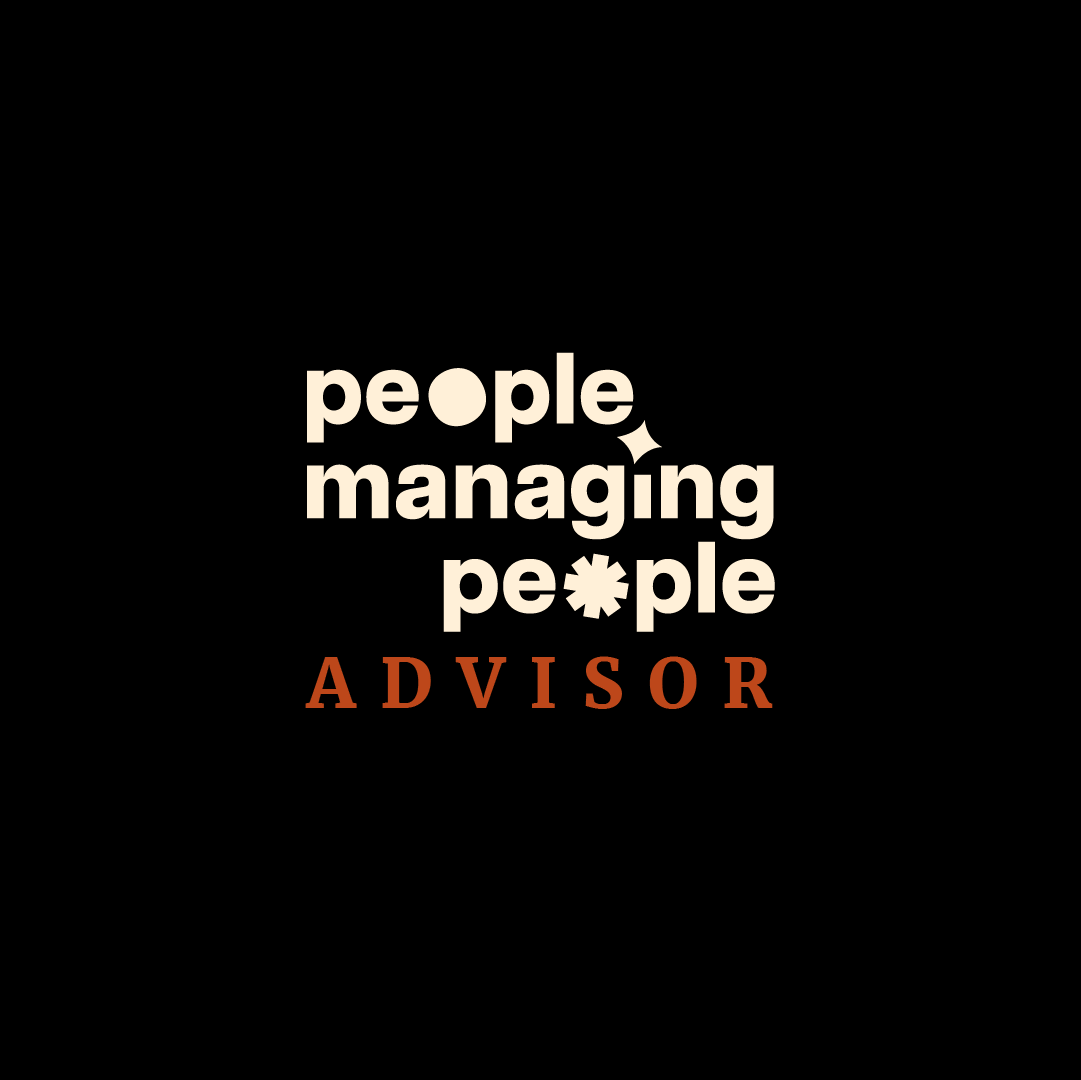10 Best Talent Marketplace Platforms Shortlist
Here's my pick of the 10 best software from the 20 tools reviewed.
Talk through what you’re looking for. Get a custom shortlist based on your needs. No fees.
Effectively managing organizational knowledge can be as challenging as selecting the proper collaboration and information-sharing tools. Many companies are overwhelmed by the sheer volume of data and knowledge within their teams, resulting in inefficiencies and missed opportunities.
As an HR technology analyst, I’ve noticed a significant rise in the need for knowledge management software that effectively captures and utilizes institutional knowledge. Leveraging my expertise in HR software, I have tested several leading knowledge management solutions available today to help organizations make the best choices for their needs.
Whether you want to implement a new system or optimize your existing processes, my guide will equip you with the insights to enhance knowledge sharing and boost your team's overall effectiveness.
Why Trust Our Software Reviews
We’ve been testing and reviewing HR platforms since 2019. As HR experts ourselves, we know how important and difficult it is to make the right decision when selecting software. We invest in deep research to help our audience make better software purchasing decisions.
We’ve tested more than 2,000 tools for different HR management use cases and written over 1,000 complete software reviews. Learn how we stay transparent & our software review methodology.
Best Talent Marketplace Platform Summary
We’ve investigated the pricing and availability of free trials and demo versions so you can make a much simpler side-by-side comparison.
| Tool | Best For | Trial Info | Price | ||
|---|---|---|---|---|---|
| 1 | Best for AI-powered career pathing | Free plan available | From 5% + 50¢ per Checkout transaction | Website | |
| 2 | Best for skills management | Not available | Pricing upon request | Website | |
| 3 | Best for talent lifecycle management | Not available | Pricing upon request | Website | |
| 4 | Best for internal talent mobility | Not available | From $4/user/month + $20,000 installation fee | Website | |
| 5 | Best for workforce optimization | Not available | Pricing upon request | Website | |
| 6 | Best for flexible consulting services | Not available | Pricing upon request | Website | |
| 7 | Best for personalized career pathing | Not available | Pricing upon request | Website | |
| 8 | Best for on-demand labor sourcing | Not available | Pricing upon request | Website | |
| 9 | Best for independent business talent | Not available | Pricing upon request | Website | |
| 10 | Best for global employee relocation | Not available | Pricing upon request | Website |
-

ChartHop
Visit WebsiteThis is an aggregated rating for this tool including ratings from Crozdesk users and ratings from other sites.4.3 -

Willo
Visit WebsiteThis is an aggregated rating for this tool including ratings from Crozdesk users and ratings from other sites.4.8 -

Boon
Visit WebsiteThis is an aggregated rating for this tool including ratings from Crozdesk users and ratings from other sites.4.7
Best Talent Marketplace Platforms Reviews
This section provides an in-depth analysis and overview of each talent marketplace platform. We will review each tool’s pros and cons, features, and best use cases.
Paddle is a platform that uses AI to create personalized career paths, helping employees find new opportunities within their organizations.
Why I Picked Paddle: I chose Paddle because of its AI-driven approach to career pathing, which sets it apart from other platforms. Paddle’s focus on the future of work by providing personalized career development opportunities based on real-time data makes it a good choice for companies aiming to enhance internal mobility and employee engagement.
Standout Features & Integrations:
Features include AI-powered career pathing, skill gap analysis, and dynamic talent mapping. Paddle also supports future-proof workforce planning by aligning employee career aspirations with internal opportunities.
Integrations include Desktop.com, Rambox, Taplink, Proxyman, Churnkey, ProductDyno, WiserNotify, Pabbly Connect, MRR.io, and Audienceful.
Pros and cons
Pros:
- Supports workforce planning
- Skill gap analysis
- AI-driven career pathing
Cons:
- Best suited for larger organizations
- May require initial setup time
Nestor is an AI-driven platform focused on skills management and workforce development, helping organizations align employee growth with business goals.
Why I Picked Nestor: I chose Nestor for its use of AI in managing and developing skills within an organization. Nestor offers personalized career paths and skills recommendations based on real-time data, which is important for companies aiming to stay competitive in a changing market.
Standout Features & Integrations:
Features include AI-driven skills assessments, personalized learning recommendations, and workforce analytics. Nestor also enables organizations to create dynamic career paths tailored to individual employee strengths.
Integrations include Microsoft Teams, Slack, LinkedIn Learning, BambooHR, and Zapier.
Pros and cons
Pros:
- Real-time workforce analytics
- Personalized career pathing
- AI-driven skills management
Cons:
- Limited small business focus
- May require time for AI to calibrate
Beamery is an AI-driven platform that manages the entire talent lifecycle, from sourcing and engagement to retention and development.
Why I Picked Beamery: I chose Beamery because of its complete approach to talent lifecycle management, which differentiates it from other platforms. Beamery’s advanced AI capabilities for managing everything from talent acquisition to employee engagement make it an invaluable tool for organizations looking to simplify and optimize their HR processes.
Standout Features & Integrations:
Features include AI-powered candidate sourcing, automated talent nurturing, and complete workforce analytics. Beamery also supports personalized engagement strategies to retain top talent.
Integrations include Workday, SAP SuccessFactors, and Greenhouse.
Pros and cons
Pros:
- Advanced workforce analytics
- AI-driven sourcing and engagement
- Complete talent lifecycle management
Cons:
- Primarily targets large enterprises
- May require significant setup
Talenteer is a platform that facilitates internal talent mobility, helping companies optimize workforce allocation and skill development.
Why I Picked Talenteer: I chose Talenteer because it focuses on internal talent mobility, a niche area many platforms overlook. Talenteer's ability to help organizations effectively redeploy their existing talent across different roles and projects is especially valuable for large, diverse enterprises.
Standout Features & Integrations:
Features include tools for managing internal gigs, skill matching, and employee development. Talenteer also provides advanced analytics to track mobility trends and workforce efficiency.
Integrations include Slack, Google Drive, Microsoft Teams, and Zoom.
Pros and cons
Pros:
- Supports large enterprise needs
- Advanced analytics tools
- Focuses on internal mobility
Cons:
- Limited public documentation
- Potentially complex setup process
ProFinda is a platform designed to optimize workforce deployment by matching skills with project needs and organizational goals.
Why I Picked ProFinda: I chose ProFinda for its approach to workforce optimization, which distinguishes it from other platforms. ProFinda’s ability to accurately match employees to projects based on skills and experience makes it particularly valuable for organizations looking to maximize workforce efficiency.
Standout Features & Integrations:
Features include intelligent skill matching, real-time workforce insights, and project-based talent deployment. ProFinda also provides detailed analytics to help organizations better understand their talent pool.
Integrations include Microsoft Teams, Slack, LinkBambooHR, Cornerstone OnDemand, Oracle HCM, and Zapier.
Pros and cons
Pros:
- Supports project-based talent deployment
- Real-time workforce insights
- Intelligent skill matching
Cons:
- Primarily targets large enterprises
- May require extensive data input
Catalant connects businesses with expert consultants, providing solutions for project-based work and strategic initiatives.
Why I Picked Catalant: I chose Catalant because of its solid network of consultants and the platform's flexibility in offering services that adapt to various business needs. Catalant’s ability to match organizations with the right expertise for specific projects makes it useful for companies seeking tailored consulting solutions.
Standout Features & Integrations:
Features include access to a global network of consultants, project management tools, and strategic initiative tracking. Catalant also offers analytics to measure the impact of consulting engagements.
Integrations include SAP, Oracle, NetSuite, ServiceNow, Microsoft, and Workday.
Pros and cons
Pros:
- Strategic initiative tracking
- Flexible project-based solutions
- Access to a global consultant network
Cons:
- Primarily suited for large enterprises
- May require time to find the right fit
365Talents is a platform that leverages AI to provide personalized career pathing, helping employees navigate and grow their careers within an organization.
Why I Picked 365Talents: I chose 365Talents because of its solid emphasis on personalized career development, which sets it apart from other talent management platforms. The platform’s ability to align employee skills with career opportunities within the company makes it good for organizations focused on internal mobility and retention.
Standout Features & Integrations:
Features include AI-driven career pathing, skill assessment, and dynamic talent mapping. 365Talents also offers tools to match employee aspirations with company needs in real-time.
Integrations include Workday, SAP SuccessFactors, Oracle HCM, Microsoft Teams, LinkedIn, Cornerstone OnDemand, BambooHR, Slack, Lever, and Greenhouse.
Pros and cons
Pros:
- Supports internal mobility
- AI-driven talent mapping
- Personalized career pathing
Cons:
- Limited small business functionality
- May require set up for specific industries
GigSmart is a platform that connects businesses with on-demand workers for short-term gigs and hourly positions.
Why I Picked GigSmart: I chose GigSmart because it provides a flexible and immediate solution for sourcing on-demand labor. Unlike traditional staffing platforms, GigSmart offers real-time access to a diverse pool of workers, which is essential for businesses needing to fill urgent positions or manage fluctuating workloads.
Standout Features & Integrations:
Features include real-time worker matching, customizable gig postings, and built-in worker reviews. GigSmart also allows businesses to manage payments directly through the platform.
Integrations include QuickBooks, Gusto, Paychex, Square, ADP, BambooHR, Slack, Zapier, and Microsoft Teams.
Pros and cons
Pros:
- Direct payment management
- Customizable gig postings
- Real-time worker matching
Cons:
- May require detailed job descriptions
- Limited long-term worker solutions
Talmix is a platform that connects companies with independent business talent, offering flexible staffing solutions for various projects.
Why I Picked Talmix: I chose Talmix because it specializes in sourcing independent business professionals, which sets it apart from general staffing platforms. Talmix’s focus on providing access to a global network of experienced, independent talent makes it a good choice for companies needing niche expertise on demand.
Standout Features & Integrations:
Features include access to a global talent network, project-based hiring, and detailed talent matching. Talmix also offers tools to manage contracts and payments within the platform.
Integrations include Microsoft Teams, Slack, LinkedIn, and Salesforce.
Pros and cons
Pros:
- Contract and payment management
- Project-based hiring options
- Global network of independent talent
Cons:
- May require extensive vetting of talent
- Primarily suited for larger projects
Jobbatical is a platform that simplifies the global relocation process for employees, handling visa applications, immigration, and compliance.
Why I Picked Jobbatical: I chose Jobbatical for its focus on global employee relocation, an important but often complex aspect of international hiring. What sets Jobbatical apart is its ability to manage the entire relocation process, from visa applications to local compliance, which benefits companies expanding their global workforce.
Standout Features & Integrations:
Features include end-to-end relocation services, automated visa processing, and compliance management. Jobbatical also provides detailed support for navigating local immigration laws in multiple countries.
Integrations include BambooHR, Workday, SAP SuccessFactors, Greenhouse, Lever, LinkedIn, Slack, Microsoft Teams, Okta, and Zapier.
Pros and cons
Pros:
- Supports multiple countries
- Automated visa processing
- Complete relocation services
Cons:
- Complex processes may require training
- May be overkill for small businesses
Other Talent Marketplace Platforms
Below is a list of additional talent marketplace platforms we shortlisted but did not reach the top list. Still worth checking out, though!
- Opptly
For AI candidate matching
- Neobrain
For skills intelligence
- Deel
For global talent access
- Phenom
For candidate experience management
- Fuel50
For employee engagement and development
- Cornerstone
For overall talent management
- Gloat
For real-time talent insights
- Eightfold.ai
For AI-driven talent matching
- Workday Talent Marketplace
For integration with HR systems
- TalentGuard
For succession planning
Related HR Software Reviews
If you still haven't found what you're looking for here, check out these other related tools that we've tested and evaluated:
- Payroll Software
- Recruiting Software
- Employer of Record Services
- Applicant Tracking Systems
- Workforce Management Software
- Learning Management Systems
Talent Marketplace Platforms Selection Criteria
The criteria for choosing a talent management platform should address buyer needs and common pain points, ensuring the tool effectively serves its intended purpose. As an expert who has personally tried and researched external and internal talent marketplace software, here are the requirements I use when evaluating these tools.
Core Functionality - 25% of total weighting score:
- Candidate Matching: The platform should efficiently match candidates to job openings based on new skills, experience, and project requirements.
- Talent Pool Management: It should allow businesses to manage and organize a diverse talent pool, including freelancers, consultants, and full-time candidates.
- Job Posting and Management: The platform should provide easy-to-use human resources tools for creating, posting, and managing job listings.
- Communication Tools: Integrated messaging or communication features to facilitate interaction between employers and candidates.
- Analytics and Reporting: Complete analytics to track hiring metrics, candidate performance and competency, and platform usage.
Additional Standout Features - 25% of total weighting score:
- AI-Driven Insights: Tools that leverage AI to provide deeper insights into candidate suitability and predict hiring outcomes.
- Global Reach: Platforms offering extensive international coverage for hiring global talent and managing compliance across multiple ecosystems.
- Integrated Payment Solutions: Built-in features for managing payments, contracts, and compliance directly within the platform.
- Advanced Customization: Platforms that allow extensive customization of workflows, automation, user interfaces, and reporting.
- Innovative Matching Algorithms: Tools that go beyond standard keyword matching to include factors like cultural fit, skill sets, work style, performance management, and career aspirations.
Usability - 10% of total weighting score:
- User Interface Design: A clean, intuitive interface that is easy to navigate for both hr leaders and job seekers.
- Complexity vs. Simplicity: The right balance between HR technology features and ease of use, ensuring that essential tasks are not buried under complex menus.
- Mobile Accessibility: A mobile app or mobile-friendly design is available to facilitate on-the-go management.
Onboarding - 10% of total weighting score:
- Training Resources: Availability of mentoring and training materials, including videos, templates, and interactive product tours to ensure growth opportunities.
- Ease of Migration: The process for importing data from previous tools and getting set up quickly on the new cloud or on-premise platform.
- Supportive Onboarding: Access to webinars, chatbots, or dedicated support during the onboarding process to ensure a smooth employee experience.
Customer Support - 10% of total weighting score:
- Availability: 24/7 support options, including live chat, email, and phone support.
- Responsiveness: Fast response times and effective resolution of issues.
- Knowledge Base: Access to a well-organized and complete knowledge base for self-service troubleshooting.
Value For Money - 10% of total weighting score:
- Pricing Transparency: Clear and upfront pricing structures with no hidden fees.
- Cost vs. Features: The balance of features offered relative to the price point, ensuring that the platform provides good value for the investment.
- Scalability: Pricing models that accommodate growth, offering scalable solutions that align with the size and needs of your organization.
Customer Reviews - 10% of total weighting score:
- Overall Satisfaction: General feedback from users regarding their satisfaction with the platform.
- User Feedback on Features: Specific comments on the effectiveness of the platform’s key features.
- Retention and Recommendation: Insights into whether customers will continue using the platform and recommend it to others.
How To Choose A Talent Marketplace Platforms
As you work through your software selection process, keep the following points in mind.
- Scalability and Flexibility: A talent marketplace platform must accommodate your company's growth. If your organization is expanding, the platform should scale accordingly, offering features that support both a small team and a large enterprise. Look for platforms that allow customization to fit different organizational needs and evolving industry demands. For example, a tech startup might require features different from those of an established enterprise.
- User Experience and Accessibility: Ensure the platform is easy for employers and job seekers to navigate. A platform with an intuitive interface and solid accessibility features will help reduce onboarding time and improve user satisfaction. Consider whether the platform offers mobile access or integration with other HR tools, which can be important for a distributed workforce or companies relying on remote hiring.
- AI and Data-Driven Matching: Modern talent marketplaces often use AI to match candidates with job openings. Assess the platform's ability to provide accurate, data-driven recommendations that align with your hiring criteria. This is particularly important for companies looking to fill highly specialized roles or to enhance diversity and inclusion within their hiring processes.
- Compliance and Security: With the increasing focus on data privacy, the platform must adhere to the latest regulatory standards. The platform should offer solid security features to protect sensitive data, especially in industries like healthcare or finance, where compliance is a significant concern. Ensure the platform provides clear, transparent policies and tools for maintaining compliance.
- Cost Efficiency: Evaluate the total cost of ownership, including any hidden fees or charges for additional features. Consider whether the platform offers a pricing model that aligns with your budget, whether you’re a small business or a large enterprise. For example, a subscription-based model might be more suitable for a growing company, while a pay-per-use model could benefit smaller teams with occasional hiring needs.
Trends For Talent Marketplace Platforms
Talent marketplace platforms are constantly changing, driven by technological advancements and workforce dynamics. Below are the key trends shaping their future.
- AI-Driven Candidate Matching: AI-driven matching algorithms are becoming increasingly sophisticated, offering more accurate pairings between candidates and job openings. This artificial intelligence trend reduces time-to-hire and improves the quality of matches, making it an essential development for organizations seeking top talent.
- Expansion of Global Talent Pools: Platforms increasingly enable companies to tap into global talent pools, allowing businesses to access specialized skills from anywhere in the world. This trend is important as it helps companies overcome local talent shortages and increases diversity.
- Integrated Workforce Analytics: Advanced analytics tools are integrated into talent marketplace platforms, providing deeper insights into workforce trends and hiring effectiveness. This trend is vital for businesses looking to make data-driven decisions and optimize their talent strategies.
- Focus on Soft Skills Matching: There is a growing emphasis on matching candidates based on soft skills, cultural fit, and personality traits rather than hard skills. This interesting trend acknowledges the importance of holistic candidate evaluation in long-term employee success.
- Gig Economy Integration: Talent marketplace platforms are increasingly integrating features that support gig and freelance workers, reflecting the rise of the gig economy. This trend is essential as it allows businesses to adapt to the growing demand for flexible, on-demand talent.
These trends highlight the ongoing transformation of talent marketplace platforms, making them more adaptive and aligned with modern workforce needs.
What Is A Talent Marketplace Platform?
A talent marketplace platform is a tool that connects employers with skilled professionals, facilitating the sourcing, matching, and hiring of candidates for various roles. Businesses, HR teams, and recruiters use these platforms to efficiently find and engage with talent for full-time positions, freelance projects, or contract work.
These platforms help simplify hiring by offering features like candidate matching, job posting, and talent pool management. They benefit organizations seeking to access a diverse range of talent quickly and effectively, ensuring that suitable candidates are matched with the right opportunities based on skills, experience, and other criteria.
Features Of Talent Marketplace Platforms
When choosing a talent marketplace platform, it's essential to recognize the key features that will let you manage your HR tasks more efficiently. Here are the most important features to look for.
- AI-Powered Matching: Matches candidates to roles based on skills and experience.
- Job Posting Management: Allows for easy creation, posting, and tracking of job listings.
- Talent Pool Management: Organizes and categorizes candidates for future opportunities.
- Communication Tools: Facilitates direct interaction between employers and candidates.
- Analytics and Reporting: Provides insights into hiring metrics and platform performance.
- Integrated Payment Solutions: Manages payments and contracts within the platform.
- Customizable Workflows: Offers flexibility in how hiring processes are managed.
- Global Talent Access: Connects businesses with talent from around the world.
- Mobile Accessibility: Supports job posting and candidate management on mobile devices.
- Compliance Management: Ensures adherence to local and international hiring regulations.
These features help organizations simplify recruitment efforts, making finding and hiring the right talent easier.
Benefits Of Talent Marketplace Platforms
Talent marketplace platforms can simplify hiring processes, improve candidate matching, and enhance overall business efficiency. Below are the primary benefits of using these platforms.
- Improved Hiring Efficiency: Simplifies the recruitment process, reducing time-to-hire and making it easier to find qualified candidates quickly.
- Access to Diverse Talent Pools: Provides access to a wide range of candidates, including freelancers, contractors, and full-time professionals from various industries and locations.
- Cost-Effective Recruitment: Centralizing hiring activities on a single platform reduces the need for traditional staffing agencies and cuts recruitment costs.
- Enhanced Candidate Matching: Utilizes AI and data-driven algorithms to match candidates with roles that suit their skills and experience, improving the quality of hires.
- Scalable Hiring Solutions: Offers scalable solutions that grow with your business, allowing you to manage hiring needs from small teams to large enterprise-level operations.
These benefits make talent marketplace platforms a valuable tool for organizations looking to optimize their recruitment processes.
Costs & Pricing Of Talent Marketplace Platforms
This section provides a detailed estimate of average talent marketplace platform plans and associated costs. The data is derived from an analysis of standard pricing tiers and the features they offer. By understanding these pricing structures, users can better assess their needs and budget considerations when choosing a talent marketplace platform that fits their requirements.
Plan Comparison Table for Talent Marketplace Platforms
| Plan Type | Average Price | Common Features |
| Free | $0 /user /month | Basic job posting, limited access to candidate profiles, and basic communication tools. |
| Basic | From $29 /user /month | Unlimited job postings, candidate matching, communication tools, and basic analytics. |
| Professional | From $79 /user /month | Advanced candidate matching, detailed analytics, integrations with HR tools, and mobile access. |
| Enterprise | From $149 /user /month | Customizable workflows, global talent access, compliance management, dedicated support, and a full analytics suite. |
When selecting a plan, consider the size of your organization and the specific features most important for your hiring needs. Each plan offers different functionality levels, so choosing one that aligns with your business objectives and budget is important.
Talent Marketplace Platform FAQs
Here are some answers to frequently asked questions about talent marketplace platforms and how it works.
How does a talent marketplace platform work?
A talent marketplace platform connects employers with potential candidates through a digital platform. Employers post job openings, and candidates apply or are matched based on skills and experience. The platform may use AI to enhance the matching process. Communication and hiring processes can often be managed within the platform.
Who can benefit from using a talent marketplace platform?
Businesses of all sizes, from startups to large enterprises, can benefit from using a talent marketplace platform. It benefits companies looking to simplify their hiring processes and access a diverse talent pool. HR teams and recruiters use these platforms to improve candidate sourcing and reduce time-to-hire.
What types of roles can be filled using a talent marketplace platform?
Talent marketplace platforms can fill various roles, including full-time, part-time, freelance, and contract positions. These platforms are versatile and cater to various industries, from tech and finance to creative fields. Some platforms specialize in specific roles or industries.
How secure is a talent marketplace platform?
Talent marketplace platforms typically implement security measures to protect user data, including encryption and compliance with privacy regulations like GDPR. Users should review each platform’s security features to meet organizational standards. Regular updates and security audits are common practices to maintain data integrity.
How do I get started with a talent marketplace platform?
To start, choose a platform that meets your needs and sign up for a plan. Most platforms offer onboarding assistance, including tutorials, customer support, and training materials. You can typically begin posting jobs and sourcing candidates shortly after setup.
Are talent marketplace platforms suitable for small businesses?
Talent marketplace platforms can suit small businesses, especially those with growing hiring needs. Some platforms offer scalable plans that accommodate smaller teams and budgets. Choosing a plan that aligns with your business size and recruitment goals is important.
What’s Next?
To remain up to date on all the latest in people management, subscribe to our newsletter for leaders and managers.
You'll receive insights and offerings tailored to leaders and HR professionals straight to your inbox.
























